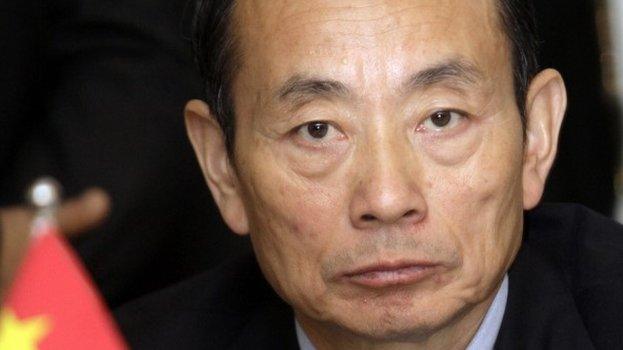Zhou Yongkang: China investigates ex-security chief
- Published
The BBC's Damien Grammaticus in Beijing says the decision to investigate sends "significant" messages to both the public and politicians
China's former security chief Zhou Yongkang is being investigated for suspected "serious disciplinary violation", state media say.
The news confirms rumours about the hugely powerful former minister, who has not been seen in public for months.
Mr Zhou headed China's Ministry of Public Security and was a member of the top decision-making body, the Politburo Standing Committee.
The move to target him will send shockwaves through the political elite.
He is the most senior Chinese official to be investigated since the Gang of Four - which included the wife of late leader Mao Zedong - in the early 1980s.
Zhou Yongkang retired in late 2012, as Xi Jinping took over from Hu Jintao as the Communist Party leader and China's president.
Since the transition, Mr Xi has introduced a wide-ranging crackdown on corruption within the party, warning graft could threaten the organisation's very survival.
Bo Xilai ally
In a brief statement, external, state-run Xinhua news agency said the investigation would be conducted by the Communist Party's corruption watchdog, the Central Commission for Discipline Inspection.
No timescale was given for the probe, which has been widely expected.
Several individuals believed to have had close ties to Mr Zhou have also been targeted in corruption investigations in recent months.
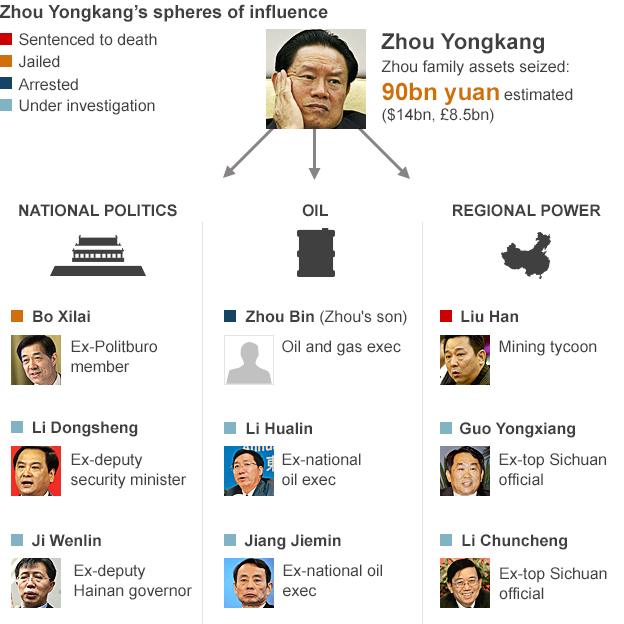

Damian Grammaticas, BBC News, Beijing
So the tiger-trap has been sprung. What does it mean? In his anti-corruption drive General Secretary Xi Jinping has publicly promised to hunt "tigers and flies", Communist Party officials however powerful or lowly who have lined their own pockets.
Now he has bagged a tiger. No such senior leader has been brought down by the party in more than 30 years. In truth Mr Zhou was a toothless tiger, retired, increasingly isolated, a spent political force. For months rumours have abounded that the former security chief was being probed. His family, associates and political allies have been caught in the dragnet of corruption investigations.
But this is about more than tackling corruption.
With this move Xi Jinping has signalled he feels powerful enough to take down any figure, to neutralise any rival networks competing for power inside the Communist Party. He is asserting his own power and authority. And he is showing he wishes to govern China in the old way, not by opening the party to more outside scrutiny over oversight, but by the use of brute political force, the party policing itself, controlled tightly from the top.

Mr Zhou's career saw him head both the ministry charged with overseeing domestic security and China's largest energy company, the China National Petroleum Corporation (CNPC).
He was also the party's top official in Sichuan province.
Allies of his from all three areas are now the subject of various investigations.
Only a handful of people serve on the Politburo Standing Committee (in Mr Zhou's time nine, currently the number is seven) and they are seen as the most powerful individuals in China.
Zhou Yongkang was also an ally of Bo Xilai, the one-time high-flying former Chongqing party chief who was jailed last year.
In initial reactions observed on Weibo, China's Twitter-like micro-blogging platform, netizens appeared to praise the announcement.
Thumbs-up emoticons, "Got him!" and "Good job!" were just some of the more popular responses.
Many also made reference to "tigers", a reference to Mr Xi's promise to include high-ranking officials in his anti-corruption campaign.
"Now that is what I call an old tiger. Good job Mr Xi," said one user. "This is just one tiger out of many, to catch tigers one must have determination, don't stop now!" said another.
It was not clear to what extent officials were censoring negative comments, as has been done in the past.
- Published12 October 2015
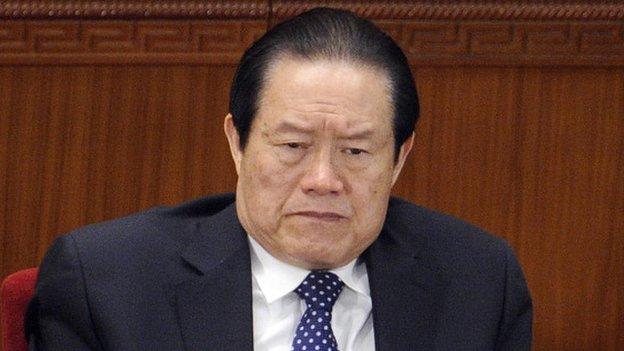
- Published15 July 2014
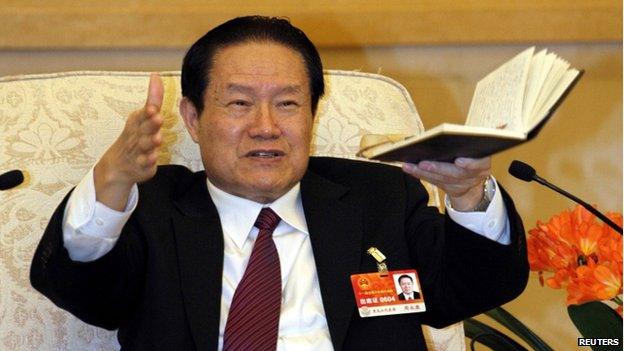
- Published6 May 2014
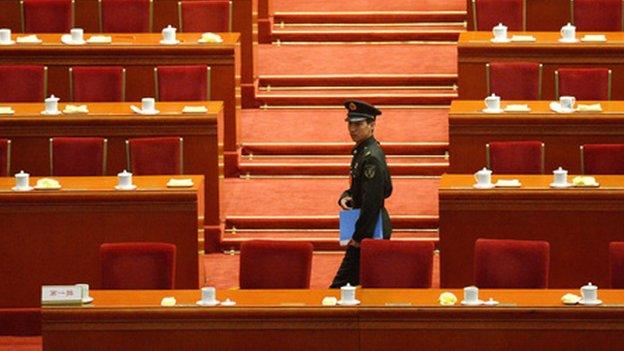
- Published24 February 2014
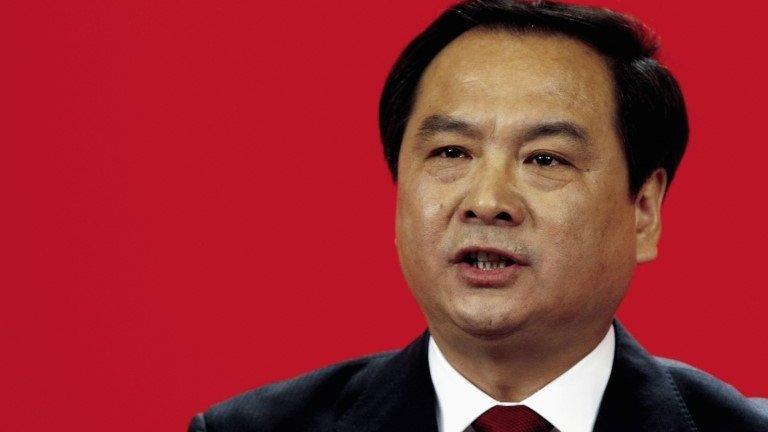
- Published1 September 2013
